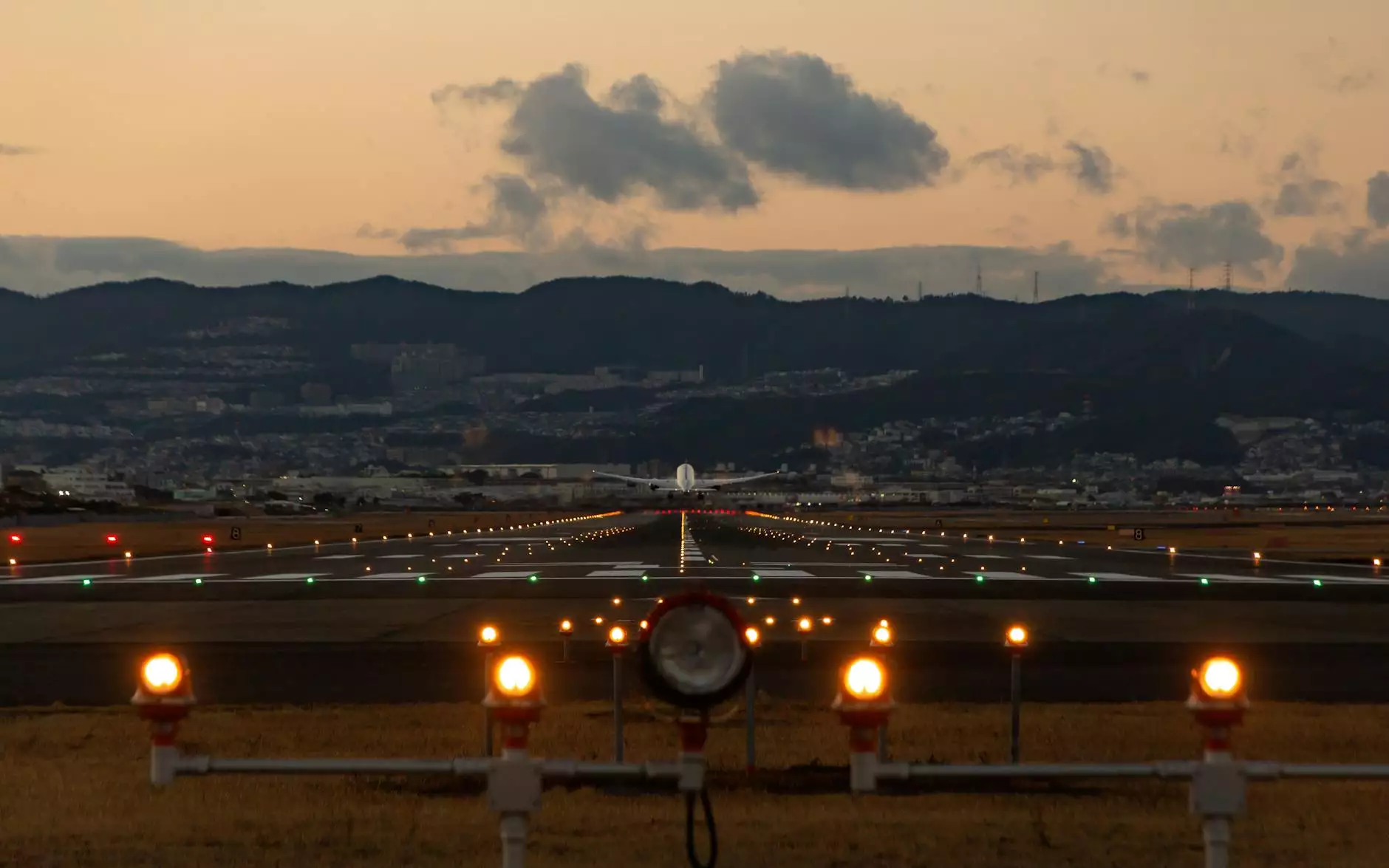The Significance of CCA École in Aviation Training

In the ever-evolving world of aviation, the importance of quality training cannot be overstated. As the demand for skilled professionals in the airline industry continues to rise, institutions like CCA École emerge as beacons of excellence in flight instruction and related aviation services.
Understanding CCA École
CCA École, which stands for Cabin Crew Academy École, is not just a training institution; it is a catalyst for propelling individuals into rewarding careers within the aviation industry. With a comprehensive curriculum and a focus on real-world applications, students of CCA École are equipped with the necessary skills and knowledge that set them apart in the competitive job market.
Why Choose CCA École?
The decision to pursue a career in aviation marks the beginning of an exciting journey. Here are some compelling reasons to consider CCA École for your aviation training:
- Expert Instructors: CCA École employs seasoned professionals with extensive experience in the airline industry, providing students with insights and mentorship that are invaluable.
- Comprehensive Curriculum: The curriculum integrates both theoretical knowledge and practical skills, ensuring graduates are well-rounded and job-ready.
- Industry Connections: CCA École's partnerships with airlines foster opportunities for internships and job placements directly within the field.
- Hands-on Training: Simulation and practice scenarios prepare students for real-life situations they will encounter as aviation professionals.
- Flexible Learning Options: Offering both full-time and part-time training schedules accommodates various lifestyles and commitments.
Flight Instruction at CCA École
At the heart of CCA École's offerings is its Flight Instruction program. This program is meticulously designed to cater to aspiring pilots and cabin crew members through the following important features:
The Flight Instruction Curriculum
The Flight Instruction curriculum at CCA École covers diverse subjects crucial for the theoretical and practical understanding of flight mechanics and aviation regulations. Key components include:
- Aircraft Systems: Understanding the various systems within an aircraft is essential for ensuring safety and efficiency during flights.
- Flight Safety and Emergency Procedures: Students learn how to handle emergencies and ensure passenger safety, which is paramount in aviation.
- Navigational Skills: Mastery of navigational tools and techniques prepares students for real-world flying scenarios.
- Communication Skills: Effective communication with crew members and air traffic control is critical for successful flights.
- Regulatory Compliance: Thorough knowledge of aviation laws and regulations ensures that students are well-versed in the legal aspects of flying.
Hands-on Experience
Recognizing that theory alone cannot produce competent aviation professionals, CCA École emphasizes hands-on experience. Students participate in:
- Flight Simulations: Advanced simulators mimic real flight conditions, offering students practical experience in a controlled environment.
- Peer Training Exercises: Collaborative training helps build teamwork skills essential for cabin crew members.
- Field Trips to Airports: Exposure to live working environments helps students understand operational workflows and airport protocols.
Airlines and Their Role in Aviation Training
Airlines play a critical role in the comprehensive education of aviation professionals. Collaborative efforts with institutions like CCA École facilitate a mechanisms through which students gain first-hand insights into the industry. Here’s how airlines contribute to aviation training:
Partnerships with Educational Institutions
By forming partnerships with educational bodies like CCA École, airlines can:
- Provide Real-world Training: Students benefit from real-life training scenarios and internships at airline facilities.
- Facilitate Job Opportunities: Graduates from accredited programs are often prioritized in recruitment by partner airlines, leading to higher placement rates.
- Shape Curriculum Development: Input from industry leaders helps ensure training programs remain relevant and aligned with current industry standards.
Aviation Services: Beyond Flight Instruction
While flight instruction is critical, CCA École extends its offerings to encompass a broad range of aviation services. This holistic approach ensures students are well-prepared for various roles within the industry. Key areas of focus include:
Customer Service Excellence
Cabin crew members are the face of airlines, making customer service excellence a cornerstone of training at CCA École. Courses emphasize:
- Communication Skills: Effective interactions with passengers bolster customer satisfaction.
- Crisis Management: Training prepares students to address passenger concerns and manage difficult situations professionally.
Cabin Safety and Security Training
Cabin safety is a non-negotiable aspect of aviation. Therefore, CCA École dedicates significant resources to:
- Emergency Medical Training: Training students in basic first aid and emergency response protocols ensures passenger safety during in-flight incidents.
- Passenger Safety Protocols: Knowledge of safety procedures, including the use of safety equipment and evacuation processes, is extensively covered.
Regulatory Knowledge and Compliance
Knowledge of aviation regulations is crucial for all professionals in the industry. CCA École ensures all students are well-versed in:
- Local and International Regulations: Understanding laws that govern aviation such as FAA regulations in the U.S. or EASA in Europe.
- Compliance Procedures: Familiarity with compliance requirements for both operational and safety protocols.
The Future of Aviation Training at CCA École
The aviation industry is dynamic, and training programs must evolve to meet its demands. CCA École is at the forefront of innovation in aviation training by:
- Technological Integration: Utilizing advanced training technologies such as drone simulations and VR experiences enhances learning.
- Continuous Improvement: Feedback loops from students and industry partners help refine and improve training programs constantly.
- Global Perspectives: Offering courses that address international airline operations prepares students for a broader range of career opportunities.
Conclusion
In conclusion, CCA École is more than just an educational institution; it is a gateway to a fulfilling career in the aviation industry. By choosing CCA École, students embark on a path paved with opportunities and professional growth. The fusion of theory, hands-on experience, and industry collaboration ensures that graduates are not just job-ready but are prepared to excel in their roles.
The future is bright in aviation, and with CCA École’s commitment to excellence, aspiring aviation professionals can confidently take flight into their careers.
cca ecole








